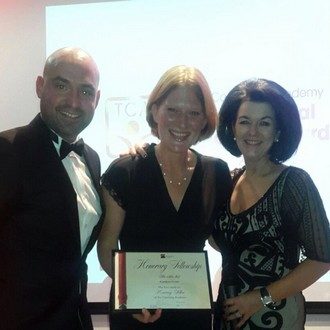With the Tokyo Olympics and Paralympics coming up this summer and having witnessed (on television!) some of the amazing feats of sporting prowess and personal accomplishment on display last time round in Rio, I’m reminded of the huge importance of setting goals.
In Rio, the Paralympics GB team returned home with 147 medals, not only the third highest medal haul in British Paralympic history, but comfortably towards the upper end of the target range set by UK Sport of between 113 and 165 medals. Athletes in many sports smashed their personal bests, broke world records and obtained world-beating performances, often in the face of pain and adversity. And of course many more competitors did not win medals, but still achieved their own goals as they represented their countries to the best of their ability.
For me, that’s what goals are all about – challenging yourself to be the best version of you that you can be. We can’t all be world-class sprinters and we shouldn’t aim to be; some mornings just getting out of the door with your running shoes on is challenge enough! Goals aren’t meant to feel like an unbearable weight on your shoulders as you strive for the impossible, but without them it’s easy to coast and feel unfulfilled both professionally and personally.
So how can you set goals that will drive you onwards, rather than driving you down?
Set goals that motivate you. Think about what’s important to you, is it having more money? More time? More respect? Goals should have value to you personally, otherwise there is nothing to be gained from achieving them. If you are given objectives by your manager (sell more of product x for example), turn them into values that you find motivating (by recommending product x to more customers I will help them to … [fill in the blank]).
Choose SMART goals. You probably know what SMART stands for, but how often do you take these five factors into account when setting targets for yourself?
- Specific. Vague and generalised goals will not give you focus.
- Measurable. How will you know when you have reached your goal? Set a definable target: sell 5 bottles of x per week, undertake an Excel course by the end of the year.
- Actionable. Is it possible to achieve what you’re setting out to do?
- Relevant. Completing an online CPD course in basic mechanics is great, but if it has no relevance to your role or your personal life then it may not be the best target accomplishment.
- Time-bound. Set yourself a realistic date by which to achieve your goal in order to prevent projects dragging on with a growing sense of disappointment that you still haven’t finished what you set out to achieve.
Write down your goals and share them with others. Putting into words what you plan to achieve immediately makes your goal real. Sharing it with others will help them motivate you if your resolve flags. Keep a log with updates of your progress so that on the days you may feel you’re not getting anywhere you can remind yourself how far you’ve already come.
Make an action plan, identifying clear steps along the way. Psychologists have found that the 10% of people who succeed in their New Year’s Resolutions achieve their goals by breaking them down into smaller steps. “I will lose two stone by Christmas” is less motivating than “I will lose three pounds every month”, which feels more achievable.
Stay focused. Setting and working towards goals is always an ongoing process – you won’t achieve your objective and then call it a day; there are always other mountains to climb, more plans to make and bigger dreams to dream!
It’s important to feel ownership for all the goals in your life. Personal targets (get a new job, stop smoking, register for an evening course) all belong to you in a way that you may feel role-related goals do not. Tasks you are asked to achieve at work, and are measured against in your appraisal, may not always be set by you, but they should at least be set with you in mind. All goals should be realistic, and if you feel that any of the objectives in your working life are actually unattainable by you, then it’s important to have a frank discussion with your manager or team leader – struggling to reach an end point that feels impossible to get even close to will only result in stress and frustration on all sides.
Of course, the point of goals is that they should be challenging, testing your abilities to the full so that you feel a real sense of achievement having reached them. And ultimately, do remember that self-belief will play a key role in helping you reaching your goal; one of my favourite quotes is from Nelson Mandela, who wisely noted that:
“It always seems impossible until it’s done.”
If you would like to take control of your life and career, my online personal development programme MyLifeStrategy can help you to overcome the personal and professional challenges you face on a daily basis and learn practical skills and techniques to make a real difference to you and your life.
I’ve developed the Get Your Life Back and the Live Your Life by Design Rather Than Default modules to support you in achieving what’s important to you in your life, helping you can clarify what you want and showing you how to focus on the important things in life so you feel more in control and get what you need from the time that you have.








